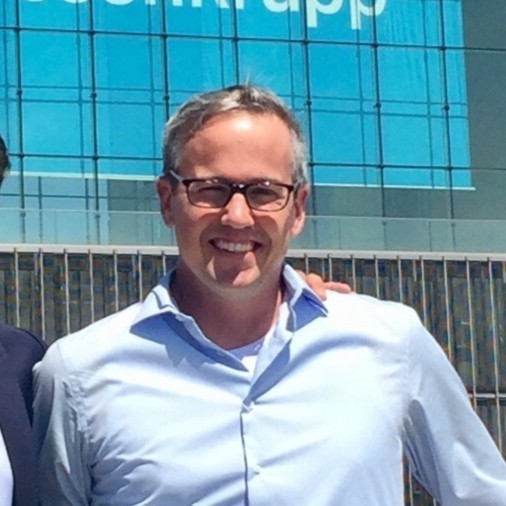Minneapolis, MN
Wednesday, May 17, 2023
Hybrid
Keynote Speaker
“"Going Back to the Basics"”
Abdeslam Mazouz
Chief Information Security Officer City of Minneapolis
I am Abdeslam Mazouz. I am originally from Morocco. I moved to the United States in 2010. I pursued a degree in network security because of passion about computer and technology in general. At first it was challenging to balance school, work, and a new family. However, I graduated with a high GPA (3.85) and was offered my first job prior to graduation. Throughout the years, I improved my skills and expertise with each opportunity. I pursued a master's degree in Information Assurance and Security from Capella University. Their program has been designated as a National Center of Academic Excellence in Information Assurance/Cyber Defense (CAE IA/CD) by the National Security Agency (NSA) and the Department of Homeland Security (DHS). After moving up through several roles in Information Security, I was appointed the Chief Information Security Officer for the City of Minneapolis. This was just a few months before the death of George Floyd and the civil unrest that unfolded after. Little did I know that I would be tasked with the defending the City of Minneapolis against the hacktivist group Anonymous during the weeks following the George Floyd incident. These days, I continue to build and transform the City's information security programs to be a resilient organization against new threats, work with City leaders to reduce risk, and enable business processes in a secure, streamlined, and easy way. I am passionate about building information security programs and improving existing programs. I enjoy challenging projects in information security and look for the opportunity to use my expertise to help other organizations and contribute to the security community.
CISO/Industry Leader Panel
“Cybersecurity Leaders and Experts on Current Cyberthreats and Practices”
Adolph Barclift
Principal - Cyber Security Practice | Chief Information Security Officer Mergence Global
Abdeslam Mazouz
Chief Information Security Officer City of Minneapolis
Tony Taylor
Chief Information Security Officer Land O'Lakes, Inc.
Sam Maeder
Information Security Officer Lift Brands
Chris Miller
Chief Security Officer MOBĒ
About the Event
FutureCon Events brings high-level Cyber Security Training discovering cutting-edge security approaches, managing risk in the ever-changing threat of the cybersecurity workforce.
Join us as we talk with a panel of C-level executives who have effectively mitigated the risk of Cyber Attacks.
Educating C-suite executives and CISOs (chief information security officers) on the global cybercrime epidemic, and how to build Cyber Resilient organizations.
“Cybersecurity is no longer just an IT problem”
Gain the latest knowledge you need to enable applications while keeping your computing environment secure from advanced Cyber Threats. Demo the newest technology, and interact with the world’s security leaders and gain other pressing topics of interest to the information security community.
The FutureCon community will keep you updated on the future of the Cyberworld and allow you to interact with your peers and the world’s security leaders.
For sponsorship opportunities email sales@futureconevents.com
Agenda
Times are subject to change
Opening Introductions | Check In | Networking
Presentation
Stories from the Front Lines: SOC Edition
There’s never a dull moment in the Security Operations Center (SOC). In this session, Daniel Smallwood shares some of the most interesting security incidents he’s encountered during his 20-year career as a threat researcher and engineer in the federal and private sectors. These include:
- The Case of the Missing Hard Drive: Lessons Learned from Handling an Insider Threat
- From the UK to Aliens to Pink Floyd: The British Hacker Story
- The Network is Overrun with Coin Miners: How to Approach an Overwhelming Breach
Daniel discusses not only the story of what happened, but the tools and techniques used and developed that brought success.
Sponsored by

Presentation
Treat Your Data Like It’s Currency
You’ve heard that “data is the new oil”. More accurately, “data is your currency”. It gives you the ability to conduct business. Mismanage it and there can be serious consequences. Lose it and you lose your business.
With your “bills” spread across your environment, managing and protecting the “money” can be a monumental task. $100s, $50s, $20s, $10s, $5s, and lots of $1s are strewn about. Knowing where your most valuable bills are is foundational to any data security process. This session will explore the key steps in identifying the most important data in your organization. Using real-world examples, we will examine the impact of placing appropriate controls to protect your most important business asset: your data.
Sponsored by

Sponsor Networking Time
Presentation
Future Trends in Application and Network Security: Looking Ahead to 2023 and Beyond
As online usage continues to grow rapidly, ensuring the safety of applications and networks from cyber threats is becoming increasingly critical. As human-like bots that can bypass traditional security measures and CAPTCHAs continue to emerge, a zero-trust approach and cloud service edge are now becoming the standard. In this presentation, we will discuss the most significant developments in cybersecurity and how your organization can benefit from them.
Key topics covered include:
- Network and Application Security Trends – What to expect in 2023 and beyond.
- Challenges that will influence your security strategy.
- Best practices to address the dilemma of balancing cost, agility, and state-of-the-art security.
Sponsored by

Presentation
Behind the Scenes of Teams and OneDrive: The Secret Life of Shared Files
With the accelerated use of Microsoft 365, we are shooting more sensitive and confidential data into the cloud than we are aware of. Keeping track of what files users are sharing among each other in Teams and OneDrive and knowing who else has access to seems an impossible task. What can you do about it? Find out in this talk.
Topics covered include:
- What goes on in the background when we share data in Teams & OneDrive.
- Why more people have access to shared files than we think.
- How tenfold helps you keep track of permissions and shared files once and for all
Sponsored by

Sponsor Networking Time
Lunch
Keynote
"Going Back to the Basics"
Sponsor Networking Time
Presentation
Can the phishing problem be solved?
Sponsored by

Presentation
Cameras, CACs & Clocks: A Story of Millions of Interrogated and Hacked xIoT Devices
We’ve unleashed our dark allies from the nightmare dimension on an unholy crusade to demonstrate cyberattacks for your enlightenment. If you love seeing devices compromised as much as we do, join us for a real hacking demonstration, detailed security research findings, and threat mitigation techniques that will disappoint bad actors. Share your new knowledge around the water cooler, apply these preventative security strategies within your own organization, and become the cool person at the office party everyone wants to hang out with regardless of that cat sweater you insist on wearing.
We’ll share stories from the trenches involving cybercriminals, nation-state actors, and defenders. Our presentation will detail findings from over six years of xIoT threat research spanning millions of production devices in enterprises and government agencies around the world. We’ll identify various steps organizations can take to mitigate risk while embracing a Things-connected world. We’ll also demonstrate a hack against an xIoT, or Extended Internet of Things, device. For those who would say, “But they’re just security cameras monitoring the parking garage, wireless access points in the cafeteria, or PLCs controlling robotic welding arms; what harm can they cause?” – this will illuminate that harm.
xIoT encompasses four disparate but interrelated device groups that operate with purpose-built hardware and firmware, are typically network-connected, and disallow the installation of traditional endpoint security controls. The first group contains enterprise IoT devices such as VoIP phones, security cameras, wireless access points, network attached storage, and printers. The second group includes OT devices such as PLCs, building automation systems, and industrial control systems. The third group consists of IoMT assets such as infusion pumps, patient monitors, and wireless vital monitors. The fourth group contains IIoT devices like robotics, smart factory systems, and temperature sensors.
There are over 50 billion xIoT devices in operation worldwide. Most of these devices run well-known operating systems like Linux, Android, BSD, and various real-time operating systems like VxWorks. Additionally, many xIoT devices have open ports, protocols, storage, memory, and processing capabilities similar to your laptop. But there is a major difference. Even though most enterprises and government agencies have tens to hundreds of thousands of these devices in production, they go largely unmanaged and unmonitored. These xIoT devices typically operate with weak credentials, old, vulnerable firmware, extraneous services, and problematic certificates. This massive, vulnerable xIoT attack surface is being successfully exploited by bad actors engaging in cyber espionage, data exfiltration, sabotage, and extortion, impacting xIoT, IT, and cloud assets.
Nation-states and cybercriminals have shifted their focus to xIoT attacks. Why? Because they work. Military-grade xIoT hacking tools are in use, cybercrime for hire that’s predicated on compromised xIoT devices has been monetized, and organizations worldwide are already “pwned” without even knowing it. Bad actors are counting on you being passive by not mitigating xIoT security risks. They want you to fail so they can continue to evade detection and maintain persistence on your xIoT devices. Disappoint them! Take your xIoT devices back by understanding how to hack them, recognizing where they’re most vulnerable, and employing strategies to successfully protect them at scale.
Sponsored by

Sponsor Networking Time
Presentation
Abnormal Security and our Modern Approach to Email Security
Abnormal Security will be discussing the changing threat landscape of email attacks, challenges from our customers and more about our modern approach to email security.
Sponsored by

Presentation
Digital Sovereignty
This talk will examine the growing call for sovereignty over digital assets in an increasingly cloud-focused world. We’ll look at how organizations need to review the governance model of IT resources, protect against new security risks, and reduce the effort to comply with more stringent regulations.
Finally, we will explore what digital sovereignty is made of, and how to mitigate some of the risks highlighted.
Sponsored by













